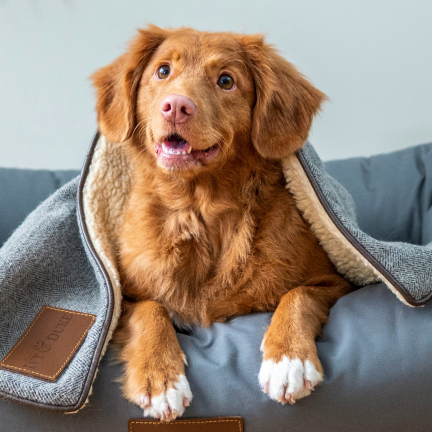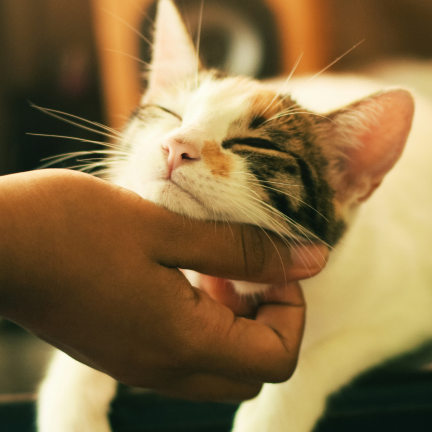
As your pet enters their twilight years, you may start to notice changes in their health, particularly their dental health. Dental health for senior pets requires additional attention because, as they age, their teeth and gums can deteriorate, leading to discomfort and potential health issues. Recognizing the importance of dental health for senior pets is the first step towards ensuring a comfortable and healthy life for your elderly companion.
The Importance of Dental Health for Senior Pets
It's easy to underestimate the significance of dental health for senior pets. However, oral health is intrinsically linked to your pet's overall well-being. Poor dental health can lead to pain and discomfort, making it difficult for your pet to eat or play. In severe cases, untreated dental conditions can even lead to life-threatening systemic diseases.
Dental health for senior pets can significantly impact their quality of life. A healthy mouth allows your pet to eat comfortably, play with their favorite toys, and enjoy their golden years without discomfort or pain. On the other hand, dental issues can cause your pet to retreat from activities they once enjoyed, leading to a decline in their overall happiness and well-being.
Lastly, maintaining good dental health can extend your senior pet's lifespan. By preventing dental diseases, you're also safeguarding your pet from associated health risks, contributing to a healthier, happier, and longer life for your furry friend.
Common Dental Issues in Aging Pets
Understanding dental health for senior pets involves familiarizing yourself with the common dental issues they face. Gum disease is a prevalent problem among senior pets, often resulting from a buildup of plaque and tartar. If left untreated, gum disease can cause pain, tooth loss, and even affect your pet's heart and kidney health.
Tooth decay is another common dental issue in senior pets. Just like in humans, tooth decay in pets is caused by bacteria that feed on sugars in your pet's food, producing an acid that corrodes the tooth enamel. This can lead to cavities, pain, and, in severe cases, tooth loss.
Additionally, oral tumors are a more serious but less common dental issue in senior pets. These growths can appear on the gums, lips, or other areas of your pet's mouth, and while some may be benign, others could be malignant and require immediate medical attention.
Dental Procedures
There are several common dental procedures for senior pets that veterinarians at Hamilton Animal Hospital perform to maintain and improve your pet's dental health. Dental cleaning is the most common procedure. It involves removing plaque and tartar buildup from your pet's teeth and beneath the gum line. This procedure can significantly reduce the risk of gum disease and tooth decay.
Tooth extraction is another common dental procedure for senior pets. If your pet has a severely decayed or damaged tooth that can't be saved, extraction is often the best option to prevent further pain and infection.
In some cases, oral surgery may be necessary, particularly if your pet has an oral tumor or severe dental disease that can't be treated with less invasive procedures. While oral surgery can be daunting, it can significantly improve your pet's quality of life and health.
How to Prepare Your Pet for a Dental Procedure
Preparing your senior pet for a dental procedure starts with a thorough pre-operative exam. This will help the vet determine any potential risks and tailor the anesthesia protocol to your pet's needs.
Ahead of the procedure, you'll likely need to fast your pet to minimize the risk of complications during anesthesia. It's also important to ensure your pet is well-rested and calm before the procedure.
Communicate any concerns or questions you have with the veterinary team. They can provide you with valuable advice and reassurance, ensuring you're confident and comfortable with the process.
What to Expect During Your Pet's Dental Procedure
Knowing what to expect during your senior pet's dental procedure at Hamilton Animal Hospital can ease your concerns and help you prepare. Firstly, your pet will be thoroughly examined to assess their overall health and determine the most appropriate dental procedure.
During the procedure, your pet will be under anesthesia to ensure they are comfortable and pain-free. The veterinary team at Hamilton Animal Hospital is experienced in administering and monitoring anesthesia for senior pets, ensuring their safety throughout the procedure.
After the procedure, your pet will be closely monitored as they recover from anesthesia. The veterinary team will provide you with detailed instructions for post-procedure care, including pain management, feeding, and activity restrictions.
Post-Procedure Care
Post-procedure care for senior pets is crucial to ensuring a smooth recovery. Immediately after the procedure, your pet will likely be groggy and disoriented from the anesthesia. During this time, it's important to keep them comfortable and quiet.
Pain management is a key aspect of post-procedure care. Your vet will likely prescribe pain medication to ensure your pet's comfort during recovery. It's also essential to monitor your pet's eating and drinking habits after the procedure. They may initially have a reduced appetite, but this should improve within a few days.
Finally, follow all instructions provided by your vet, and don't hesitate to reach out if you have any concerns or notice any changes in your pet's behavior or condition.
Preventive Measures for Dental Health
Preventive measures are the best way to maintain dental health in senior pets. Regular brushing of your pet's teeth can significantly reduce plaque and tartar buildup. Introducing dental-friendly diets and treats can also contribute to oral health.
Routine vet check-ups are essential to spot early signs of dental disease. Your vet can provide professional dental cleanings and advise you on the best dental care practices for your senior pet.
How Hamilton Animal Hospital Can Help
At Hamilton Animal Hospital, we understand the unique dental needs of senior pets. Our experienced veterinary team is committed to providing the highest quality dental care for your elderly companions. We pride ourselves on our comprehensive dental services, from routine cleanings to complex oral surgeries.
We believe in a proactive approach to dental health, focusing on preventive care and the early detection of dental diseases. Our hospital is equipped with advanced dental equipment, and our team is continuously trained on the latest dental procedures and best practices.
Ensuring Your Pet’s Optimal Dental Health
Dental health is a critical aspect of your senior pet's overall well-being. It's our responsibility as pet owners to ensure that our pets receive the best care possible, especially in their golden years. With the right information, preparation, and veterinary support, you can ensure that your senior pet maintains a healthy mouth, contributing to their overall health and happiness. At Hamilton Animal Hospital, we're here to support you every step of the way, providing expert care with compassion and commitment.
To learn more about dental procedures for senior pets, visit Hamilton Animal Hospital in our Huntington Beach, California, office. Please call (714) 964-4744 to discuss any questions with our team of experts or to schedule an appointment today.



